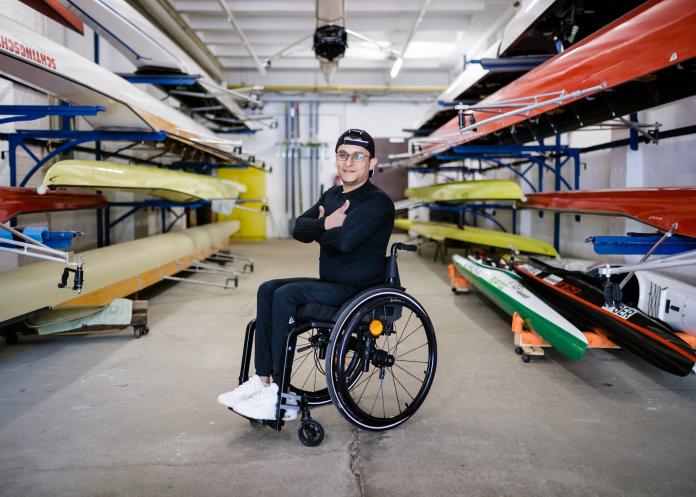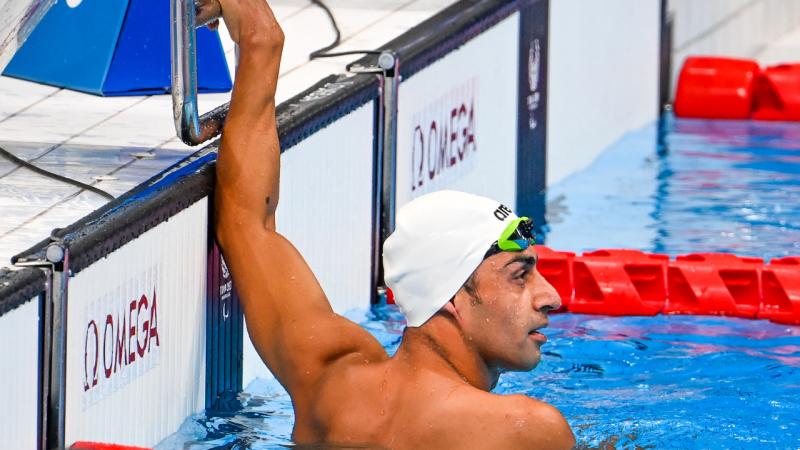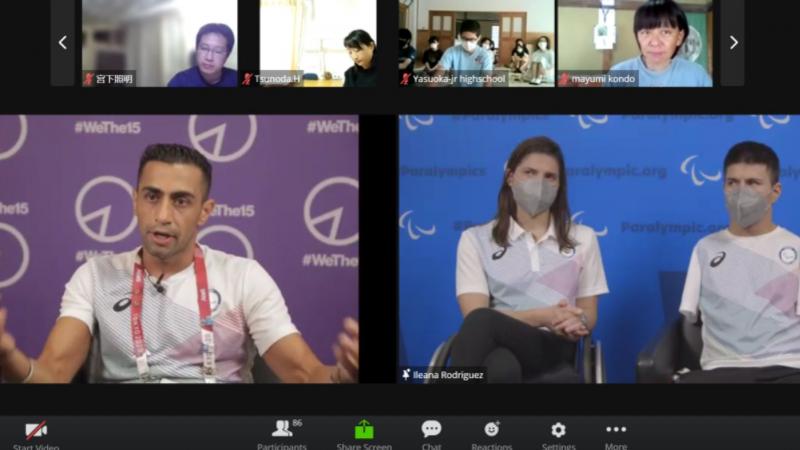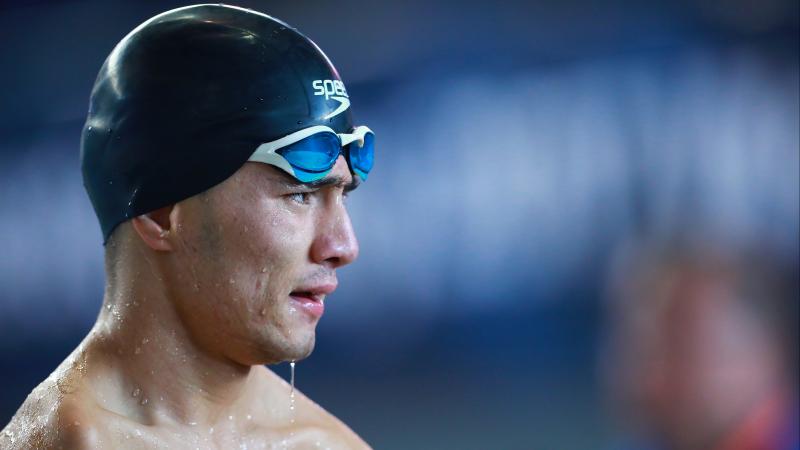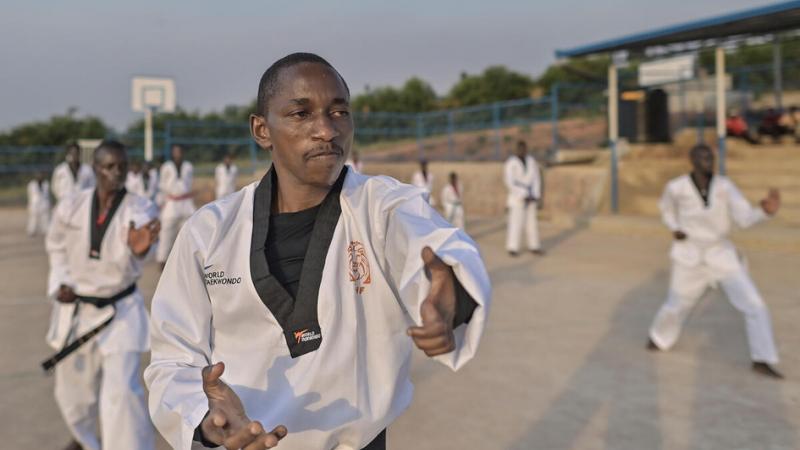The coaches who helped the refugee Paralympic athletes on their journey to Tokyo 2020
Shahrad Nasajpour and Anas Al Khalifa describe the positive impact their coaches have had on them 02 Sep 2021When Shahrad Nasajpour goes to compete in the F37 discus event representing the Refugee Paralympic Team on Friday (3 September), he will have his coach, John Karahalios, shouting instructions from the stands at the Japan National Stadium.
Karahalios has coached him in Arizona, USA, since 2018. Nasajpour competed on a team of two with a refugee and asylee in what was then called the Independent Paralympic Athletes at the Rio 2016 Paralympic Games. He says he is a much-improved athlete now and credits his coach.
“He helped build me up from scratch,” Nasajpour says.
In particular, he says the coach helped him with his technique and taught him how to be a better athlete overall.
But Nasajpour, who sought asylum from Iran and now lives in the USA, says what is most impressive is how Karahalios has assisted him.
“When I talk to my coach and tell him about my situation and what I’m here representing (on the Refugee Paralympic Team), he just treats me different than other athletes.”
All six athletes on the Refugee Paralympic Team constantly speak about the fact they are representing the 82 million displaced people around the world and trying to give them a message of hope through their stories.
“To me, this team is different from other teams. All the members of the team, the athletes, coaches even the officials are here for more than just the competition,” says Nasajpour, adding his coach is a good example.
“He says, I'm not here for the financial thing. I want to help you get better and be the best you can be. So, he helps me almost as a favour because there's a bigger cause here.”
Another member of the Refugee Paralympic Team competing in the KL1 kayak semi-final on Friday has a similar story about the impact his coach has had on him.
When Anas Al Khalifa met his coach, Ognyana Dusheva, he had never tried the sport before. He was living in Germany after fleeing the war in Syria.
When Dusheva asked him if he wanted to try kayak, he did not know what she was talking about. The sport is not all that well known in Syria.
Dusheva told him if he worked hard, he could get to Tokyo. For the past several months, she has gone out on the water with him, training even on weekends, helping Al Khalifa make a rapid rise in the sport.
Dusheva, who won an Olympic bronze medal for Bulgaria at the 1988 Olympics in Seoul and has coached around the world, saw potential in Al Khalifa that he did not even know he had.
“I feel like Anas is like my child,” she told the IPC in May. “When I see how he’s grown up, he’s like a beautiful flower that has sprouted from a seed.”
More importantly, the coach helped Al Khalifa emerge from a dark place after he fell off a roof in a workplace accident in Germany and suffered a spinal cord injury.
“She is a strong woman who does not know the word impossible. She means the world to me,” Al Khalifa says.
Dusheva is not the only Olympian coaching one of the athletes on the Refugee Paralympic Team.
Alexander Tsoltos, who competed for Greece during the Athens 2004 Olympics, was a vital part of swimmer Ibrahim Al Hussein’s journey to Tokyo.
Another Greek coach, Dionysios Koumparis, was instrumental in Alia Issa’s rapid rise in her event club throw. She finished eighth in her first Paralympics. The photo of Issa smiling alongside her coach was seen around the world.
The heavy Greek presence among coaches on the Refugee Paralympic Team is no coincidence.
The Hellenic Paralympic Committee has offered special support to refugee athletes and coaches to help their development and, earlier at the Games, was encouraging other National Paralympic Committees to do the same.
Rounding out the coaches on the team is Marty Hendrick, a Masters Swimming coach in the USA, who worked tirelessly behind the scenes for the past year with Afghan refugee Abbas Karimi. Hendrick helped Karimi swim his fastest time ever and become the eighth fastest in the world in the 50m butterfly S5 in Tokyo.
Parfait Hakizimana was able to get to Tokyo after living in the Mahama Refugee Camp in Rwanda. He says his coach, Zura Mushambokazi, has been a big part of that, helping him with his training.
“These coaches may not get a lot of attention and might like to stay in the shadows. But they are the unsung heroes of the Refugee Paralympic Team,” says the team’s Chef de Mission Ileana Rodriguez.
 Facebook
Facebook
 Instagram
Instagram
 Twitter
Twitter
 Youtube
Youtube





